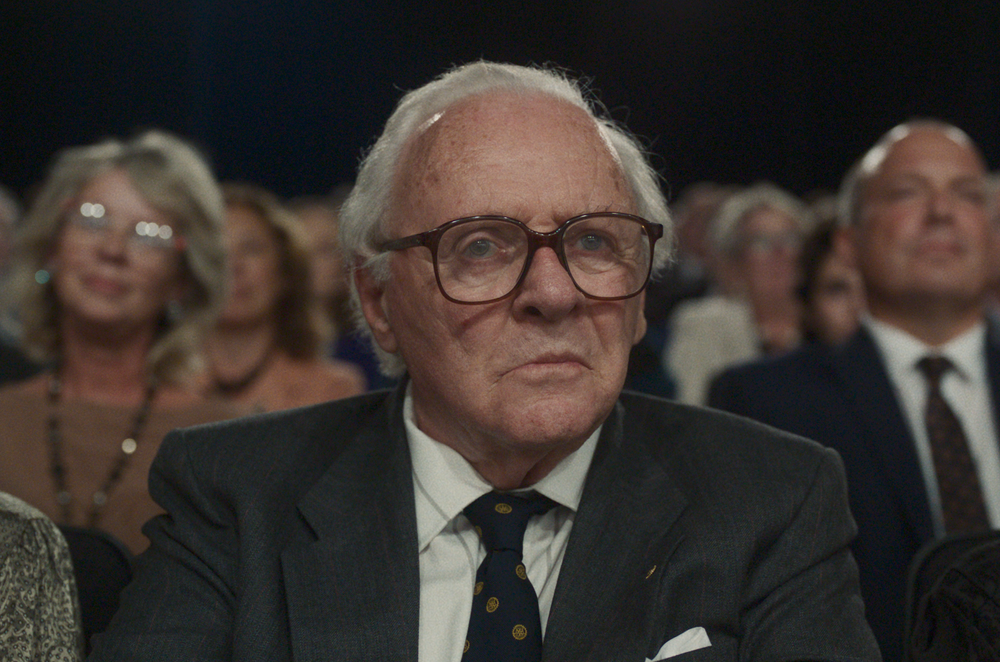
Images courtesy of Bleecker Street
ONE LIFE– 4 STARS
Across TikTok, Facebook Reels, and Instagram Stories, we find ourselves living in a social media era where micro-moments of edited videos speak volumes and catch on to become viral sensations. Because of short attention spans or the speed of the next curated or algorithmic swipe, those shared videos can be as fleeting as they are impactful, yet a memory is created nonetheless. One Life shares an engaging root with one such viral clip.
A minute-and-a-half snippet of a 1988 episode of the BBC entertainment program “That’s Life” has been viewed by 42 million people and called the most touching video ever. Host Esther Rantzen is shown introducing a previously unshared 50-year-old scrapbook that recorded children from Czechoslovakia who were transported to England and placed in foster families before the Nazi invasion of Poland ignited World War II. She informs the in-person and TV audiences that, not only is the author of that scrapbook Mr. Nicholas Winton, present, but also one of the now-grown children who was saved. As a stroke of surprise, they were placed to sit next to each other. The clip crescendos with Rantzen asking if anyone else in attendance owes their life to Nicholas Winton, to which dozens more around him stand.
LESSON #1: THERE’S A STORY BEHIND EVERY VIRAL CLIP– Folks, that claim of “the most touching video ever” is not an overestimation. In a mere 99 seconds, explosions of amazement, sympathy, and appreciation flow freely. You watch it and know there has to be more to that cherry-picked broadcast moment. When you learn Nicholas Winton saved not a few dozen, but 669 children, you long for the larger story there. When you learn he was later knighted by Queen Elizabeth II and given the Czech Republic’s highest civilian honor, the Order of the White Lion, you know the larger story is a special one as well. While the history of Nicholas Winton has spawned films and won a documentary Oscar (2001’s Into the Arms of Strangers: Stories of the Kindertransport) and an international Emmy (2002’s The Power of Good: Nicholas Winton), there is more than enough celebration space for One Life’s performative retelling led by an acting legend.
Two-time Academy Award winner Anthony Hopkins (The Silence of the Lambs, The Father) stars as Nicholas, depicted in the late 1980s cleaning out his Maidenland home to prepare for arriving grandchildren. His wife Grete (Lena Olin) is urging him to donate the many paper records of he and his team’s exploits to a museum or a news agency. For 50 years, Nicholas has never sought or taken credit for his work with the British Council of Refugees: Czechoslovakia - Children's Section. He has also never reconnected with any of the people saved. Winton’s revisitation into his many files and photographs of old names and faces spurs the reenacted memories that follow.
LESSON #2: THE PRE-INVASION STATE OF NAZI REFUGEES– For those flashbacks in One Life, Johnny Flynn (The Dig, The Outfit) stands in to play the 29-year-old stockbroker visiting the old Sudetenland in 1938 for business when he became embroiled in the refugee efforts coordinated by Doreen Warriner (Romola Garai) and Trevor Chadwick (Alex Sharp). Like a true humanitarian as a member of the “army of the ordinary,” Winton did not care about faith, creed, or background, and emphasized the agnostic stance to help those in need with his possible means. Nicholas would use his diligent and studious clerical skills to create a detailed records of refugee children while working on the public support side back in England with his mother Babi Winton (Helena Bonham Carter, playing her signature brand of a tough old bird) to secure fundraising for train travel, expedited visas from the inundated immigration department, and proper foster family matches.
In this analog time, the enormous undertaking was completed with handwritten or typed correspondence, the speed of the postal service, and the hopeful reliability of international phone calls. With Nazi occupation increasing by the week, these were perilous endeavors that reached their worst point on September 1, 1939 and the day of the final and largest BCRC train. While the Winton character may be the headliner, One Life does a very admirable job championing the entire team effort. Romola Garai and Alex Sharp flesh out excellent supporting roles as the frontline presences who stayed in Europe to help the stranded adults and outlast the war.
LESSON #3: THE POWER OF GRIEF AND REGRET-- Witnessing the plight of the Czech parents is a secondary source of dramatic power in One Life. Every goodbye is a crusher. Their put-upon protective faces of reassurance mask tearful and unparalleled anguish, knowing the frightening and innocent reality of their own remote chances of surviving the coming conflict to see their children again. Winton’s team knew the trust they were asking for and the great responsibility they carried. The harrowing memories have fueled long-held, haunting guilt in Hopkins’ elder Nicky that he couldn’t save more. In both the past and the present, Volker Bertelmann, the Academy Award-winning composer of All Quiet on the Western Front, guides these grim moments with mournful strings and swelling orchestration fitting the emotions.
Brimming with Winton’s altruism in both time periods, the cordial and determined performances from Johnny Flynn and Anthony Hopkins in One Life are pure gifts. Winton himself often said his actions were not really about him. That same giving nature comes from the two men playing him. Their breaking points supersede their triumphs as each era’s Nick laments on not being able to save more people. All things considered, tribute is the aim of their showmanship and determination as actors, and they definitively honor their subject.
LESSON #3: TELLING PEOPLE ISN’T BRAGGING– With a different approach, One Life could have very easily veered into horn-tooting hero worship or some kind of indulgent salve applied to reduce the horrors of the Holocaust. That’s not the case with the work of director James Hawes and screenwriters Lucinda Coxon (The Danish Girl) and Nick Drake (Romulus, My Father) to depict this history with little to no extra flamboyance. The film’s style and attitude matches the central figure who never put the glory first. The history speaks for itself and needs no assistance for heft.
Circling back to the viral video of “That’s Life” that piqued our interests, there was indeed a story to be had, and it turned out to be history we should all learn from. Based on casualty statistics alone that stretch into unfathomable millions, the amount of evil from the Holocaust will always overshadow the countering efforts of good, yet that doesn’t mean moviemakers and storytellers should give up bringing brave and valiant stories to the attention of eager audiences. 669 saved souls is 669 souls. They lived to create generations now numbering thousands. When done right, as One Life is, these positive historical movies are not vaunted “savior” movie narratives. Instead, they are evidence for and inspirations of hope that always exist. That’s a story worth telling every time.
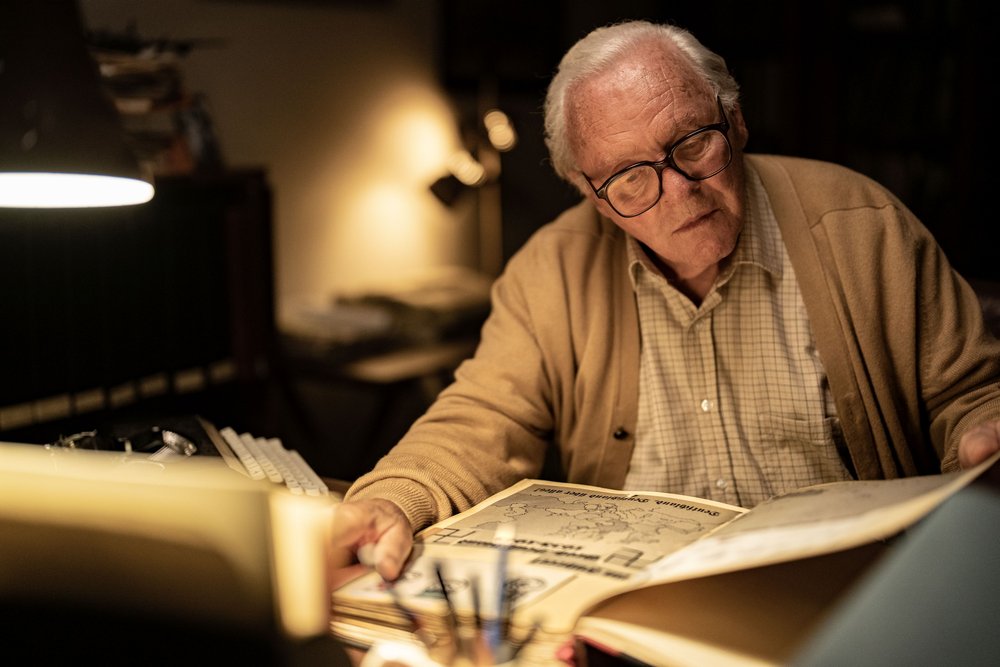
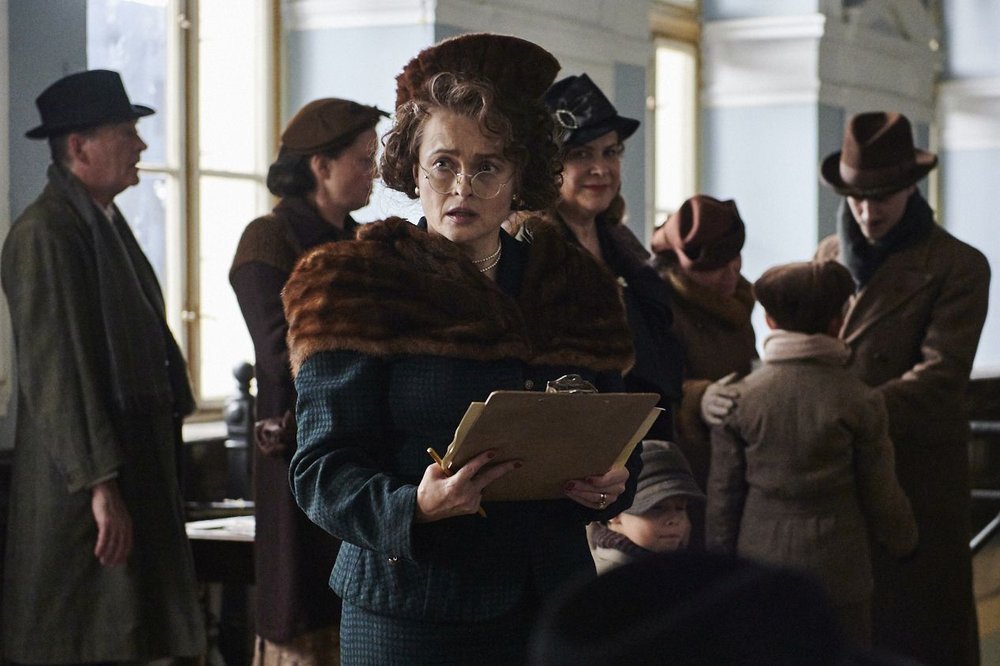
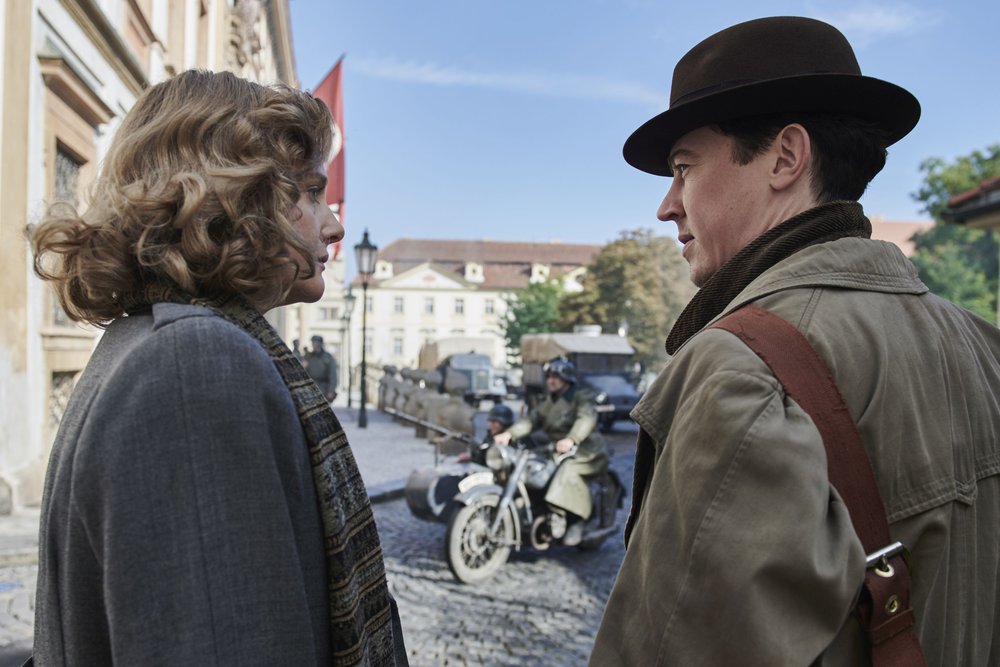
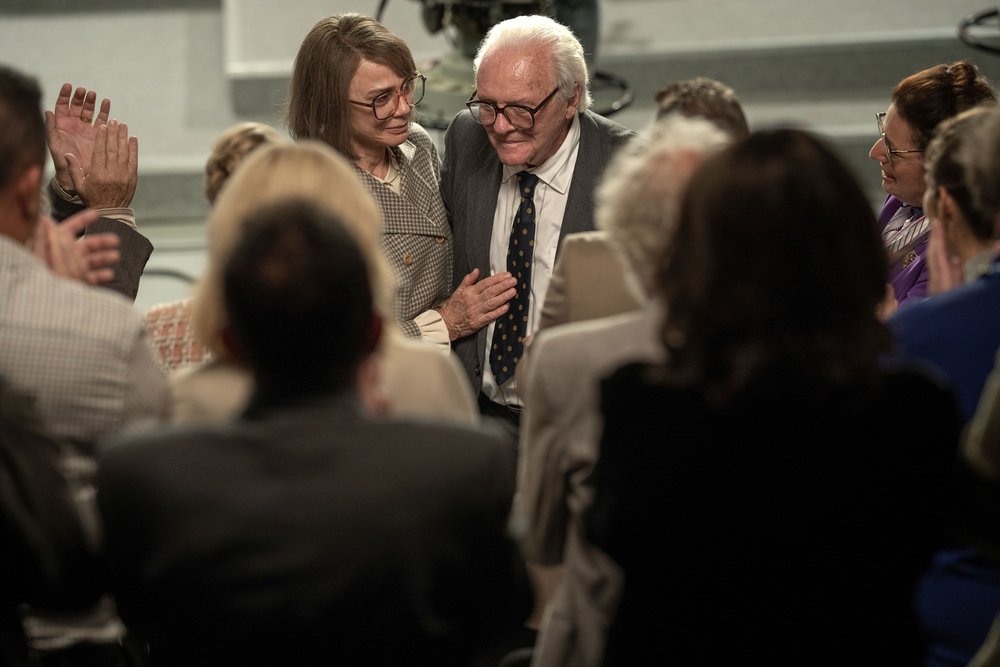
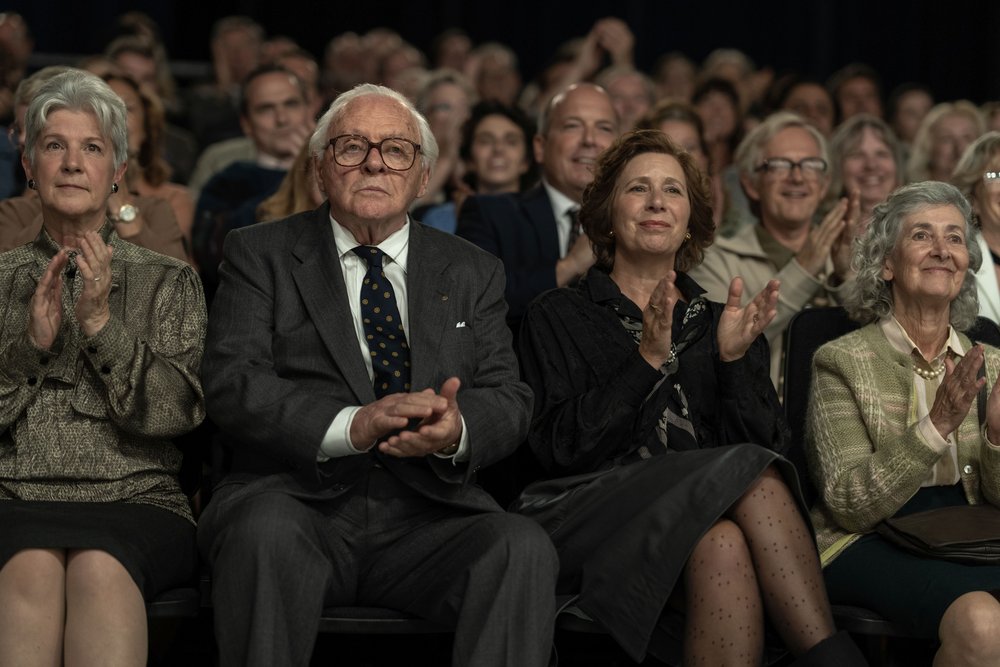
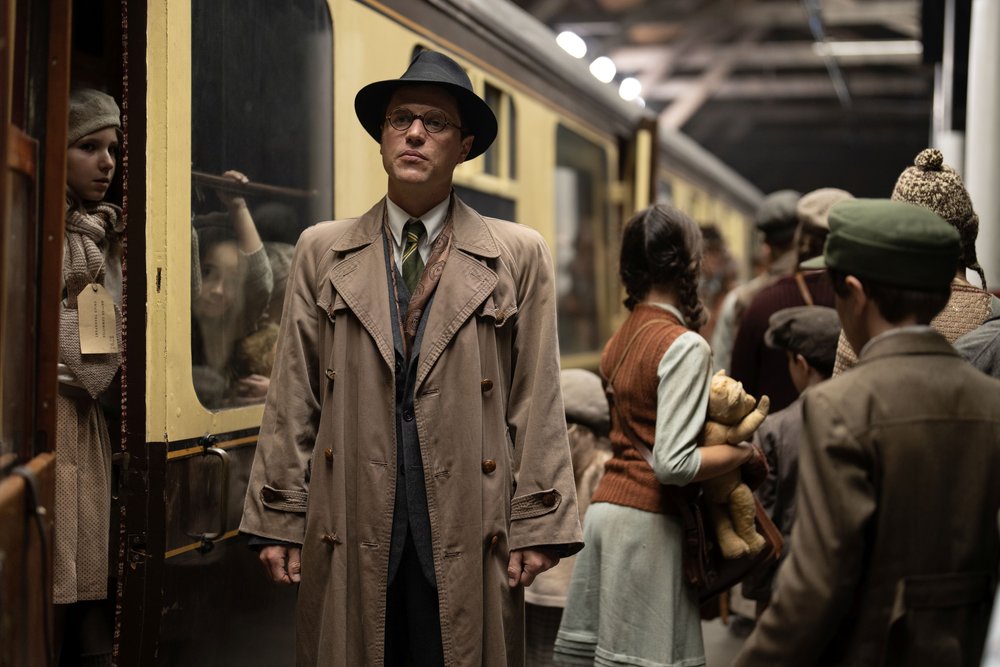
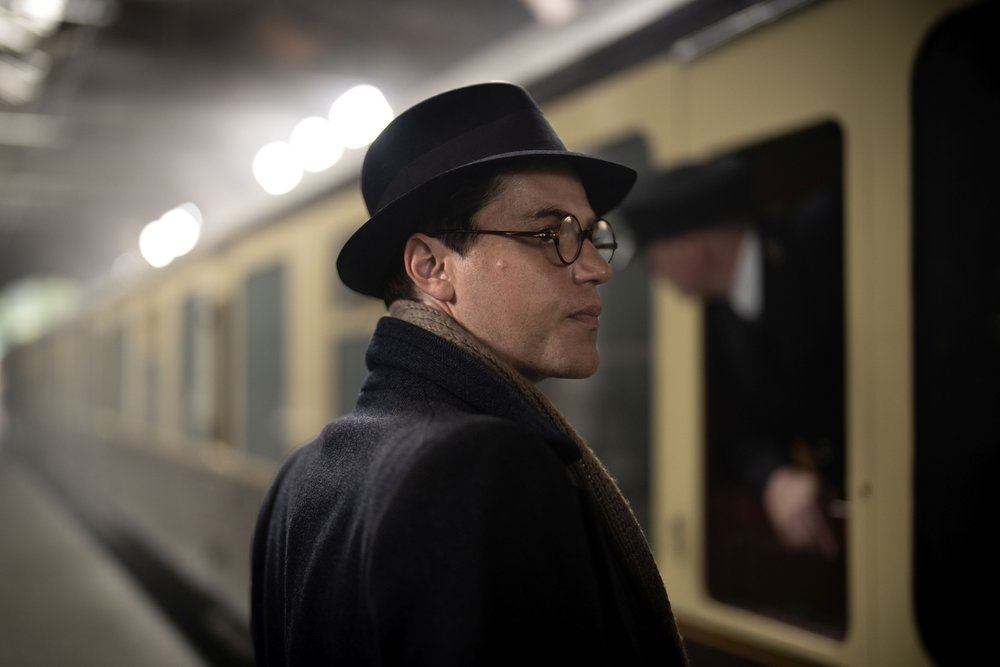

LOGO DESIGNED BY MEENTS ILLUSTRATED (#1180)
from Review Blog https://ift.tt/P5d2gsK







No comments:
Post a Comment